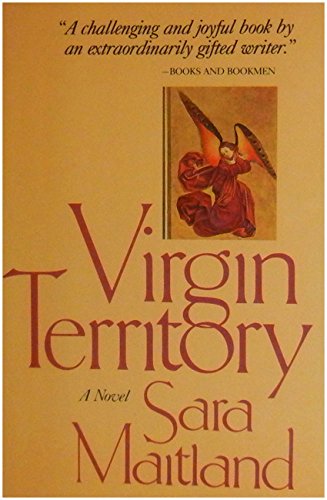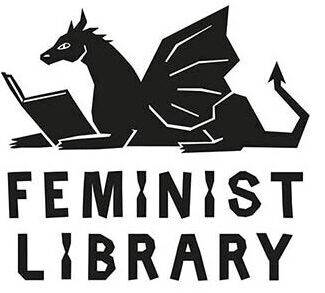Review of Sara Maitland’s Virgin Territory

CW: rape, religious misogyny, eating disorders.
Published in 1984, Sara Maitland’s novel Virgin Territory opens with a nun, Sister Katherine Elizabeth, being raped by two men in a field.
For the rest of the book, Maitland’s chooses to focus on the other nuns in Katherine’s convent and the psychological effects that her being raped has on them.
The book follows Sister Anna, from the start, where she is overly pious and sensible to an emotional breakdown that ends in her self-liberation and Sr. Katherine’s healing. Anna is unable to control herself from crying constantly and starving herself as coping mechanisms for the rape that has affected their entire convent. Whilst the book’s subject matter is undeniably tough, the Sisters’ love and solidarity for one another is heartwarming and strongly feminist – challenging stereotypes that feminism and Christianity cannot exist near one another.
At the start of her emotional breakdown, Anna is advised to leave her current convent for her Mother house in London where she was first posted as a nun, in hopes that a change of scenery will improve her mental state. This proves the opposite as Sister Anna deteriorates without her strong friend Sister Kate (who was once a social activist) and her rebelliousness. She begins hearing voices of patriarchal Gods who threaten and degrade her constantly – warning that if she does not follow their rules she will be punished greatly in her current and immortal life.
Some of the sections of this book that most stood out for me are when Anna asks the ‘Fathers’ in her head to to rape her so that she may be cleansed of her sins, and then when Anna talks of the Saint Rosa of Lima who lived in severe self-penance, sleeping in a bed of nails and wearing thorns under her habit until her death. These two moments force the reader to think about how women’s pain is viewed in the Bible and society as deserving and self-imposed.
Whilst studying in the British Library, Anna meets a lesbian feminist called Karen who is researching for a book she is writing on women’s sexuality and masochism. Anna and Karen form a close friendship that turns romantic, and forces Anna to confront her sexual desire.
Karen serves to show how the lesbian feminist is the definition of freedom from the Madonna-whore complex that imposes on Anna as a Virgin nun, and women generally. Anna’s puritanical virginity finds its power in the renouncement of any sexuality as a devotion to God. Whereas, the lesbian feminist finds her power in defining and enjoying her sexuality on her own terms without men.
What questions are brought up when we think of the rape of a nun?
Can virginity ever be an empowering thing for women, especially women married to a male-imagined God? How does a religious woman reconcile with her Catholic faith and the atrocities that have been done in the name of it? Must a dedication to God require putting oneself through pain and punishment? What are the roles of women’s pain, self-harm and sexuality in the Bible?
All of these challenging questions and more are asked throughout the book and often answered.
Thought-provoking and rare, I would recommend this book for anyone interested in learning more about the topics of feminism, religion and women’s sexual desire.
Reviewed by Kerrie Draghi
